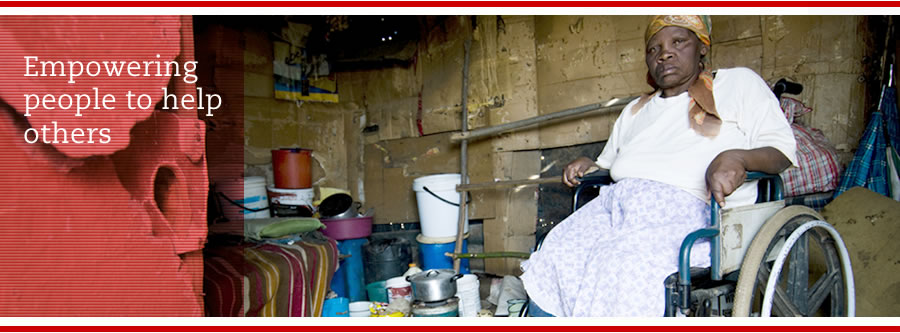Expressions of Interest for 2015 – 2016 Now Open
EOI Bursaries for Employed Persons 2015-2016
EOI Internships 2015-2016
EOI Work Experience for TVET Learners 2015-2016
EOI Learnerships 2015-2016
EOI Sign Language for Department of health and Social
Development Employees 2015-2016
EOI Skills Programmes 2015-2016
EOI Work Integrated Learning 2015-2016
click here to redirect to the Expression of Interest Information
SkillsTalk@HWSETA Newsletter June 2015 edition out now
Click here to download newsletter
HWSETA Funds Animal Health Studies in Eastern Cape
At a function held in Tsolo, Eastern Cape, on 25 May 2015 the Health and Welfare Sector Education Training Authority (HWSETA) awarded 50 learners with full bursaries to obtain a Diploma in Animal Health from the Tsolo Agricultural and Rural Development Institute (TARDI).
The event was attended by the Deputy Minister of Higher Education and Training, Honourable Mduduzi Manana, the MEC for Eastern Cape Rural Development and Agrarian Reform, Mr Mlibo Qoboshiyane, the Mayor of Mhlontlo Local Municipality, Counsellor M Giyose, Chariman of the HWSETA Board, Dr Confidence Moloko, Ms Yvonne Mbane, CEO for the HWSETA, numerous other dignitaries, the learners and their parents.
“The partnership that the HWSETA has entered into with the Eastern Cape Department of Rural Development and Agrarian Reform is a significant milestone in pushing back the frontiers of poverty,” comments Ms Mbane.
Ms Mbane describes the partnership as ‘business unusual’, but is quick to add that this is a strategic intervention specifically aimed at addressing the shortage of skills in the animal health sector, which contributes towards food security.
19-year-old Wandile Sitandatu trekked more than a 100km from Kei Mouth to Tsolo earlier this year with one goal in mind, to become an animal health technician. He successfully registered for the three-year diploma at TARDI but he held out little hope that his unemployed mother would be able to afford the tuition fees of R20 000 per year.
“Immediately after I received the fee structure for my studies, my knees just went weak and I thought this is it for me, this is the end of my dream,” Sitandatu explained to the audience with tears in his eyes. “When I got home I showed my grandmother the fee structure and she also agreed we wouldn’t be able to pay.”
This all changed for the better when he was one of the 50 students who would receive funding from the HWSETA for his studies. Sitandatu believes that the bursary he has received from the HWSETA will open many doors for him.
Mr Qoboshiyane urged the learners to grab the opportunity with both hands. He described how his Department is intent on turning the Eastern Cape into a hub of activity and a food basket.
Learners and their parents alike were overwhelmed and expressed their joy and gratitude. One learner was given the opportunity to thank the HWSETA saying that ‘I do not know where I would have gone to or what I would’ve become if it was not for the bursary. My grandmother does not work, and with this I will be giving her hope too that the suffering will one day end’.
Qualification Development and Maintenance a Key Focus for the HWSETA
The skills development landscape in South Africa is one that requires constant change and innovative thinking on the part of Sector Education Training Authorities (SETAs) to meet the needs of the sectors they serve. The HWSETA is no exception and it is this mindset that resulted in the establishment of the Qualification Development and Maintenance (QDM) sub-division in October 2013 to focus on this key area of responsibility for the HWSETA.
“The delivery of quality training in South Africa requires a combination of accredited training providers that are able to deliver excellent quality training content and material,” comments Champa Gopal, Qualification Development and Maintenance Manager for the HWSETA. “By assessing and maintaining quality in these two critical areas, learners in South Africa are assured that the training they receive will enable them to make a positive contribution to the skills pool in the health and social development sectors.”
Since its establishment, the QDM sub-division has approached the task at hand with zest and the hard work is paying off.
The QDM sub-division, in partnership with the National Department of Health (NDOH) and International Training Education Centre for Health (I-TECH), has been successful at registering the Occupational Qualification: Health Promotion Officer (Community Health Worker) SAQA ID 94597 in November 2014. This qualification replaces three community health work (CHW) legacy qualifications in the form of CHW levels 2, 3 and 4.
The HWSETA will not accredit private skills development providers (SDPs) for this newly registered occupational qualification and this is a function that will reside with the Quality Council for Trades Occupation (QCTO). Accreditation of providers by the QCTO will be dependent on the signing of a Memorandum of Understanding with the National Department of Health (NDOH) ensuring the learner has a designated workplace with a mentor during the time of study to obtain the required workplace experience.
Ms Gopal adds that the accreditation processes for legacy qualifications will remain with the HWSETA and this should not be confused with the accreditation processes outlined by QCTO for registered occupational qualifications.
The HWSETA conducted workshops nationally to inform its stakeholder base of this shift in accreditation and implementation processes for this new occupational qualification, as well as qualifications that will be developed in future.
To date the QCTO has successfully accredited twelve regional training centers attached to the NDOH. A partnership pilot training project for 900 learners in twelve regional training centres commenced in March 2015.
Whilst the HWSETA will not be responsible for the accreditation Skills Development Providers for this occupational qualification, it has received approval from the QCTO to be the Assessment Quality Partner (AQP). As an AQP, the HWSETA is responsible for setting up final external summative examinations, co-ordination of national examinations through approved assessment centers, as well as assessment and recommendation of learner certification to QCTO.
The examination process and logistical arrangements will be conducted through partnerships with Community of Experts (CEP’s) to ensure seamless quality processes are applied. The ETQA will timeously announce all examination logistics.
“This is an important milestone for the HWSETA and we believe that what we have learnt during this process will pave the way for the development of occupational qualifications that will replace the thirty three legacy qualifications that the HWSETA is mandated to quality assure,” adds Ms Gopal.
The HWSETA has submitted the occupational qualification, Social Auxiliary Work to QCTO for registration with SAQA and is currently awaiting the outcome of this occupational qualification.
Within the next five years the HWSETA intends having all legacy qualifications re-curriculated into qualifications that will translate into occupations and ultimately provide the youth of the country an opportunity to follow a career within the Health or Social Services Sector .
“The development of occupational qualifications that are relevant to the labour market underpins the activities of the QDM sub-division and it is this thinking that drives us to achieve targets that will positively impact the health and social development sectors in the country,” concludes Ms Gopal.
HWSETA Urges Caution When Enrolling at Private Training Institutions
The South African Sector Education and Training Authorities (SETAs) on a daily basis receive reports of students that have been the victims of unscrupulous training providers. Whilst this is a national problem, the Health and Welfare Sector Education and Training Authority (HWSETA) is currently very concerned about the actions of several unscrupulous training or skills development providers operating in Kwa-Zulu Natal that claim to have the necessary accreditation from the HWSETA. These organisations have been reported to the relevant law enforcement agencies. Continue reading
HWSETA Achieves Clean Audit for 2013/14 Financial Year
When the South African Auditor-General awards a public entity a clean audit it is an indication of exemplary achievement in terms of corporate governance, risk management, consistent application of internal control, Continue reading
Skills Development for Persons with Disabilities a Focus for HWSETA
As part of its skills development mission, the HWSETA strives to create an awareness of disability and how employing persons with disability can enrich the working environment, as well as the lives of those living with disability. Continue reading
Stakeholder Interaction Remains a Key Driver for HWSETA
In striving to meet the needs of learners in the health, social development and veterinary sectors, the HWSETA realises the importance of maintaining effective stakeholder communication that guides the direction skills development initiatives should be taking. Continue reading






